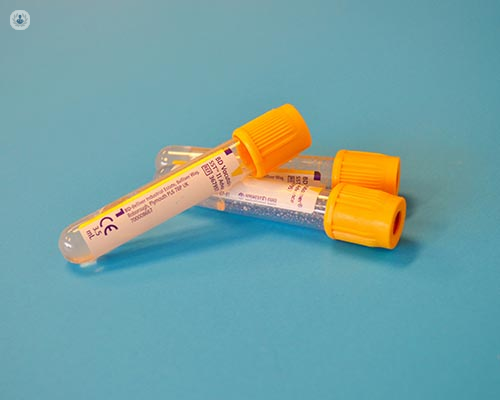Glucose
What is analysed in a blood glucose analysis?
The blood glucose analysis assesses the sugar levels in the blood. Various tests, such as fasting blood glucose, postprandial blood glucose, random blood glucose, and glycated hemoglobin (HbA1C) determine blood glucose levels.

What do the results mean?
Results indicate the concentration of glucose in the blood. Normal values suggest good metabolic control, while altered values may indicate disorders like diabetes or prediabetes.
Why perform the analysis?
To diagnose carbohydrate metabolism disorders, such as diabetes or hypoglycemia, to monitor diabetes treatment, and to evaluate gestational diabetes during pregnancy.
When should this analysis be performed?
Fasting blood glucose should be performed after a minimum eight-hour fast. Postprandial blood glucose should be carried out after eating, assessing levels up to two hours post meal. Random blood glucose can be performed anytime during the day, regardless of the last meal.
Is any sample required?
For most tests, a venous blood sample is drawn. A fasting blood glucose analysis requires an eight-hour fast. Other tests do not necessitate specific fasting.
How is it used?
Results guide diagnosis and management of metabolic disorders. HbA1C reflects long-term glucose control. Fasting blood glucose: ≤ 99 Prediabetes: 100-125 Diabetes: ≥ 126 Altered values: Levels above 200 mg/dL indicate diabetes. Significant fluctuations may signal metabolic issues.